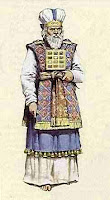Scripture Passage for Today
Scripture Focus
“The duties of the Kohathites at the Tabernacle will relate to the most sacred objects.” (Numbers 4:4 NLT)
Observation
I remember how, as a youngster, I was scolded a time or two for boisterous behavior in the church building because it was “God’s house.” I remember being told once that, in any stack of books, the Bible should always be on top because of its sacred nature as a holy book. But these days? Not so much.
I don’t think that’s a bad thing, necessarily. To declare a building or a book “holy” does run the risk of diminishing *my* place as part of the “holy temple” God is building…*my* opportunity to live out the Living Word of God.
The trouble, it seems to me (and all this comes from reading how very exacting and careful the Israelites were instructed to be in their handling of the tabernacle and its furnishings), is that when we don’t have “sacred things” sometimes *nothing* ends up sacred instead of *everything* becoming sanctified. (Does that make sense? Because I know I’m not completely clear in what I’m writing at this moment.)
Am I sacred? Yes. Are the meals I’ll enjoy today sacred? Yes. Are the conversations I’ll hold today sacred? They *ought* to be—they hold the potential to be. But without the “formality” of sacred things in my life—a sacred place to meet with God, a sacred book that speaks His Words—sometimes the sacredness of everything else gets forgotten.
“Because you have redeemed me, God, everything about my life ought to be seen as just as sacred as every holy artifact handled by the Levites. Help me to see that! Help me to see each moment, every conversation, each gift the day brings, as ‘Holy unto the Lord’!”




























